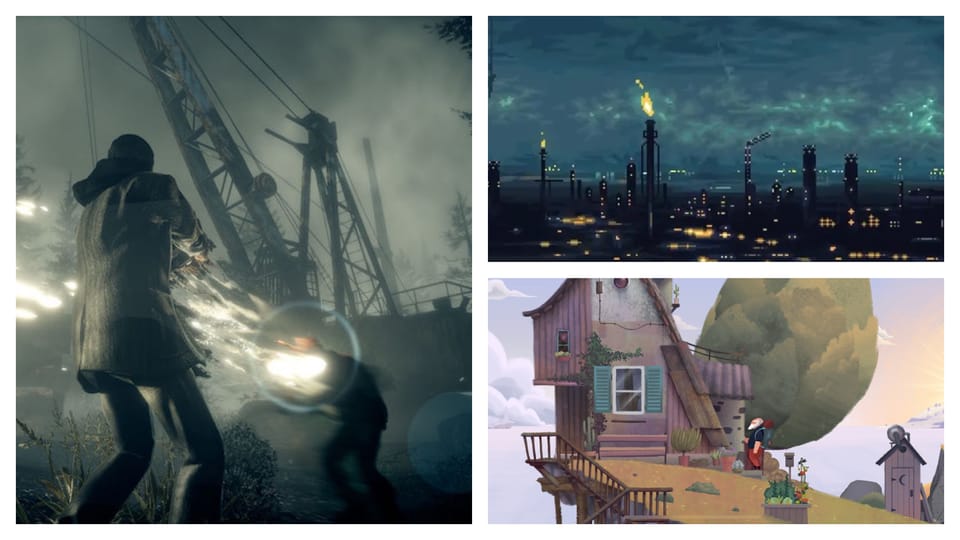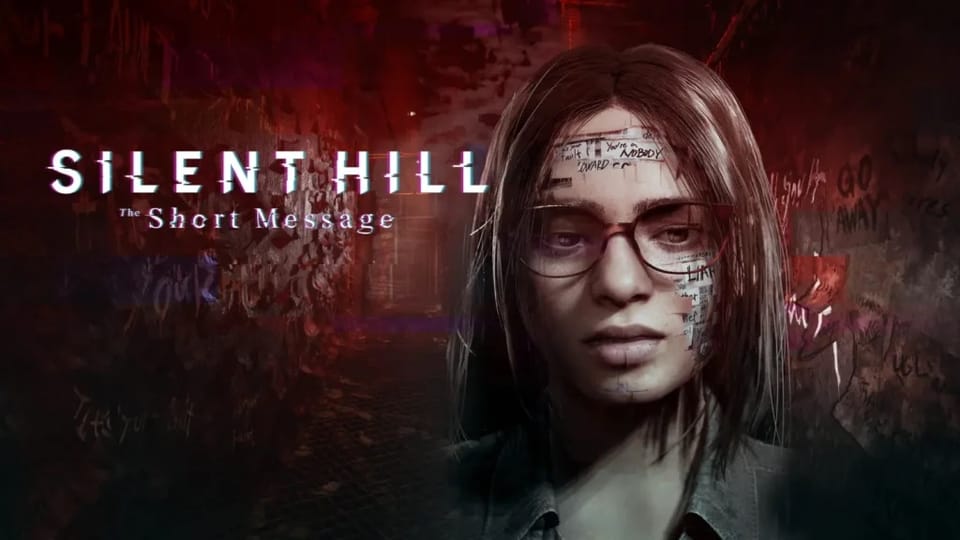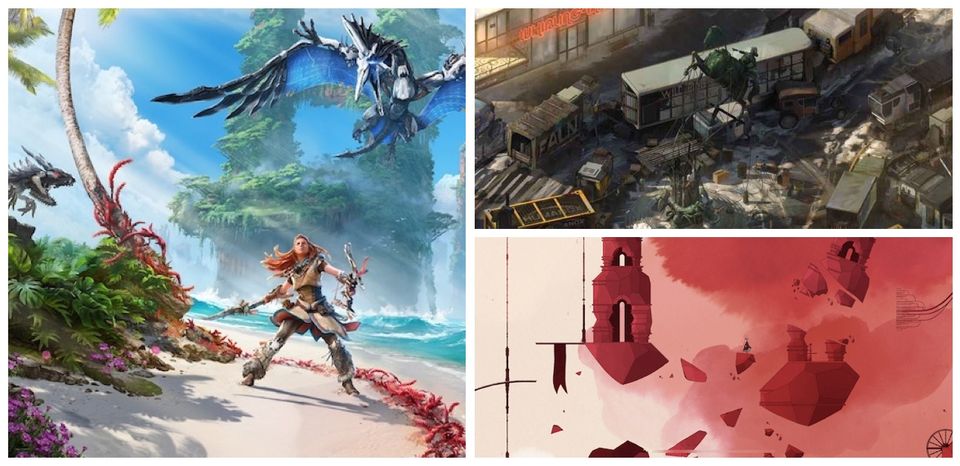It's been a great year for me when it comes to games, and I found a ton of wonderful game experiences that I loved — making the selection of my favorites a bit challenging.
I started or continued playing 32 games in 2023. Of these games, I completed 23, leaving seven unfinished and ongoing games (specifically two mobile puzzle games that don't have a proper end point). The unfinished games include: Fallout: New Vegas (Obsidian Entertainment), Starfield (Bethesda), Baldur's Gate 3 (Larian), God of War (Sony's Santa Monica Studio), Dishonored (Arkane Studios), Yakuza: Like a Dragon (Ryu Ga Gotoku Studio), and Getting Over It with Bennett Foddy (Bennett Foddy).
Most of the games that I played were released prior to 2023, and because of this, all of the games on this list were also older titles. I explored a number of gameplay genres throughout the year, from adventure games to bullet hells to puzzle games. Among my favorites, my interests tended toward survival horror, narrative-intensive adventure games, and casual puzzle games.
Game of the Year: Alan Wake Remastered
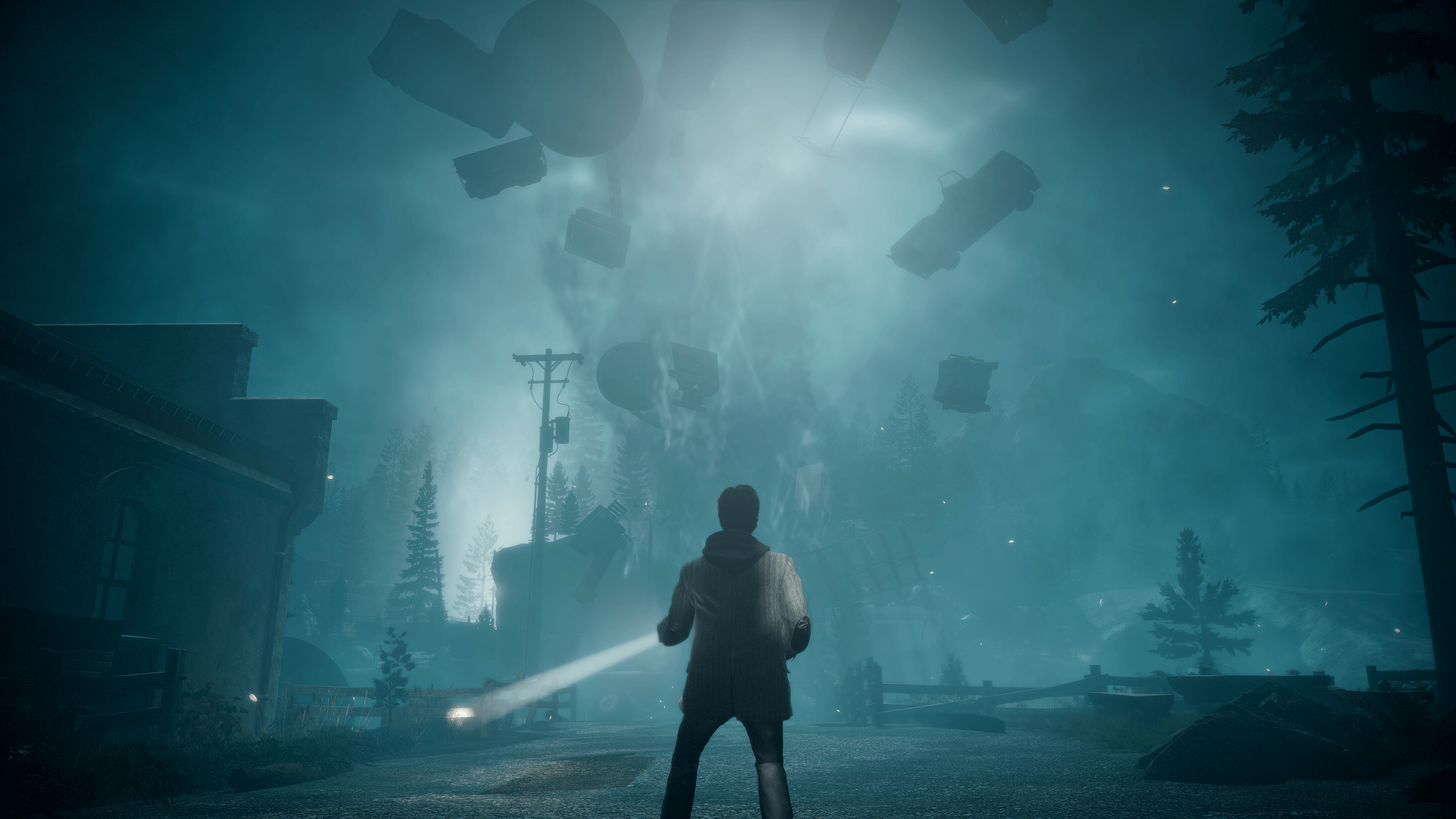
I had to stop and think about recency bias when considering whether or not Alan Wake Remastered (Remedy Entertainment) was indeed my personal game of the year. After all, I played it in December just as 2023 was wrapping up and it is certainly the most present in my mind. But after carefully thinking about it, I can't deny that Alan Wake was without a doubt the most enthralling experience of the year, one that I have continued (and likely will continue) to think about having now completed both the main game and the two DLCs.
Alan Wake (the character) is a thriller author dealing with depression and anxiety after two years of writers block. Hoping for a reprieve, Alan and his wife Alice travel to a quaint town, called Bright Falls, Washington. But something goes horribly wrong and Alan wakes up from a car accident with no memory of the past few weeks. Alice has gone missing and, as he begins to look for her, he faces a darker world full of those possessed by darkness.
This game features a weird, mind-bendy horror premise, an immense incomprehensible evil, and a meta-narrative with how Alan's writing has the power to shape reality — all of which are the kinds of things that suck me in and keep me immersed. Although I often found the combat itself to be some of the most frustrating I've played in a long while, all of the other elements of this narrative were so captivating that they overrode that frustration, pushing Alan Wake to the top of the list. I loved this game — and I can't wait to play and further explore Remedy's connected world with Control and Alan Wake II.
Pentiment
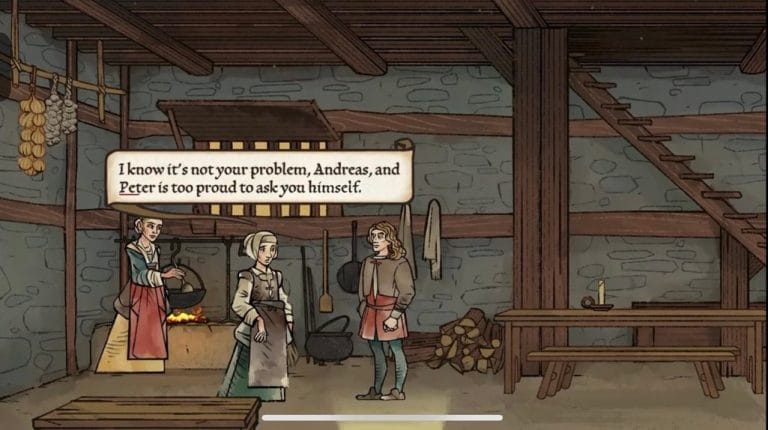
Pentiment was wonderful surprise from Obsidian Entertainment. Set in 16th century in the fictional town of Tassing, Bavaria, the narrative-driven adventure game blends its art style, text, and gameplay together into a cohesive experience that bring this historical setting to life. The story centers on Andreas Maler, an illuminator (an artist who provides art for manuscripts) working at the local Abbey. A sudden murder of a prominent noble forces Andreas to begin an investigation to find the killer. Gameplay involves exploring around the town and speaking with the villagers in order to discover the truth.
The game stretches across several decades and is fascinating in the way that it eliminates clear objectivity by showing versions of the truth, as interpreted through the biased perspectives of the characters. It also presents limitations on the time available for the investigation, making the determination of the murderer as much guesswork as it is based on the evidence that Andreas uncovers. As the title hints at (a pentiment is an underlying image that has been painted over), the “truth” is often a layering of stories and time.
Signalis
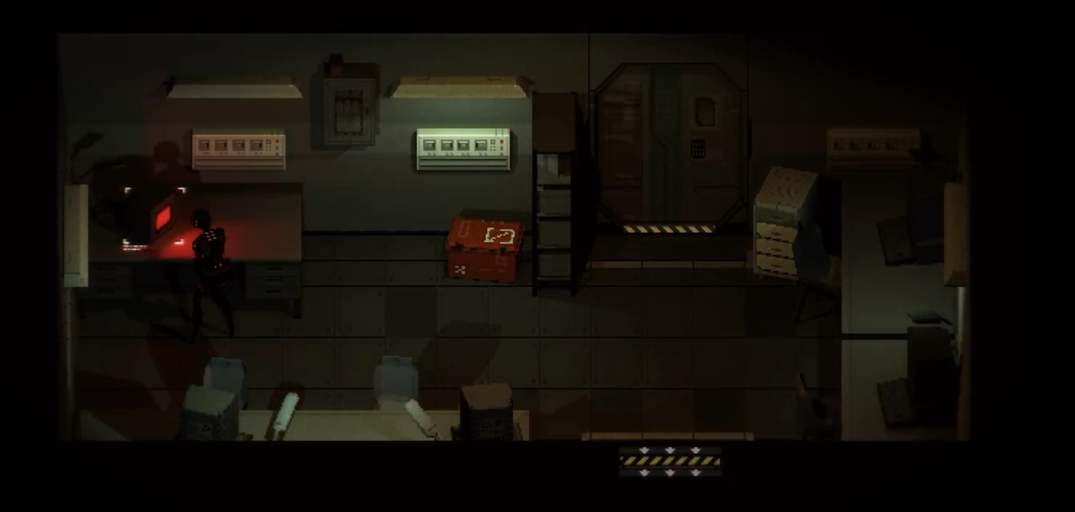
Signalis (developed by rose-engine) is a survival horror game involving a scouting starship that has crashed on a strange alien planet. You play as Elster, a replika technician that awakens from her cryochamber and begins to look for her missing Gestalt partner, Ariane.
The majority of the game is played in a top-down, asymmetrical perspective as you explore the ship full of infected replikas that attack Elster on sight. This game is true survival horror, with limited carrying capacity and minimal access to weapons and supplies. Since you never know what hides behind a closed door and all the spaces are compact, traversing through the levels is a tense experience (and I often found myself dipping into a room only to immediately flee from some overwhelming threat).
The pixelated art style and sound design are gorgeous. And the mixture of cut scenes with quick flashes of mysterious images combined with letters and ephemera scattered throughout the ship and interactions with other characters hint at the overall narrative rather than explicitly explaining it. Furthermore, to get the complete experience of the game requires restarting the game, which unfolds additional story content (something that is not immediately obvious). For me, I allowed the narrative to unfold like poetry, focusing more on the feeling of the experience rather than forcing myself to fully understand the exact plot points (however, watching this video analysis of the game helped with clarifying my understanding in this regard). Nevertheless, this was a phenomenal and horrifying game experience.
Fiasco
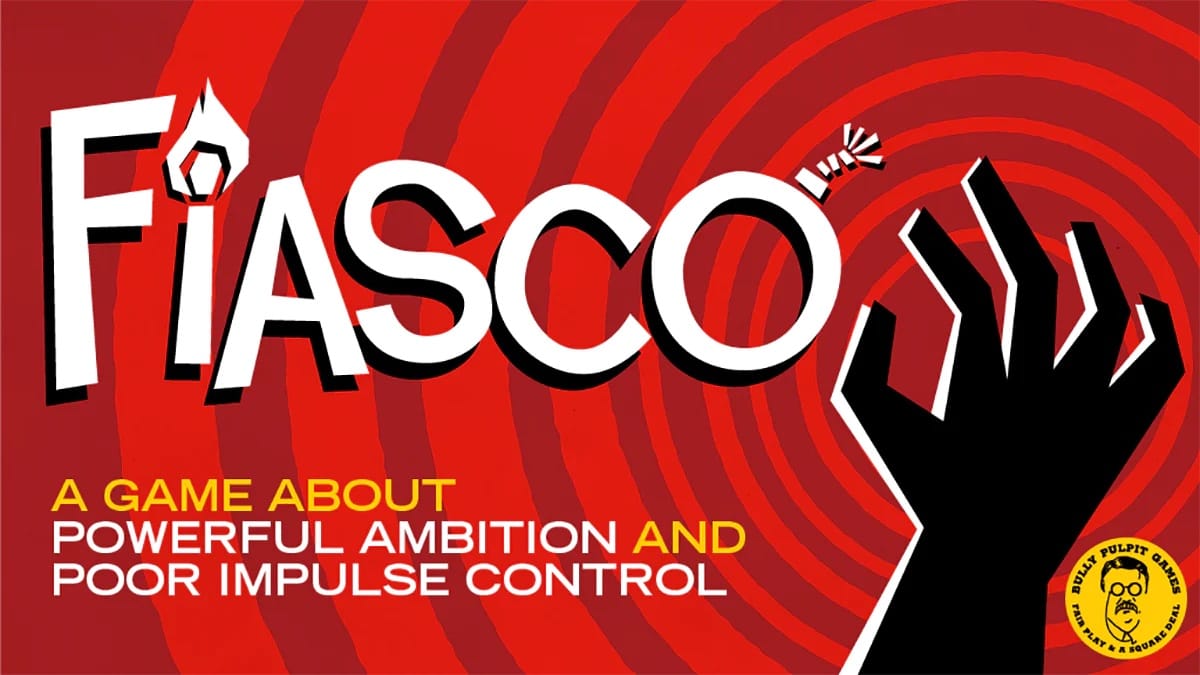
I haven't played many table-top RPGs, but I should probably dive into more of them because I absolutely loved my experience with Fiasco (Bully Pulpit Games). In Fiasco, the players use dice to select character traits, as well as the connections and conflicts between those characters. Then, the game story is co-created by each of the players (instead of being directed by a DM) — and as the title implies, things go wonderfully and terribly wrong.
One of the main things this experience taught me is that much of the enjoyment of TTRPGs comes directly from the people who make up the group of players. I was blessed to be able to play with brilliant and funny game writing friends, making it a lovely and hilarious experience.
Unpacking

Unpacking (Witch Beam) is a puzzle game with a simple premise. The player is presented stacks of cardboard boxes and must unpack these boxes to move into the new space in which the character is living. The player chooses where to place the objects within the home, having to move items around and readjust to make sure that each book, T-shirt, collectable, and toothbrush has its proper place. This game is delightful and relaxing in its gameplay and — without using dialog — manages to tell a lovely story about a woman growing up, finding her place in the world, and traversing the ups and downs of love.
Her Story
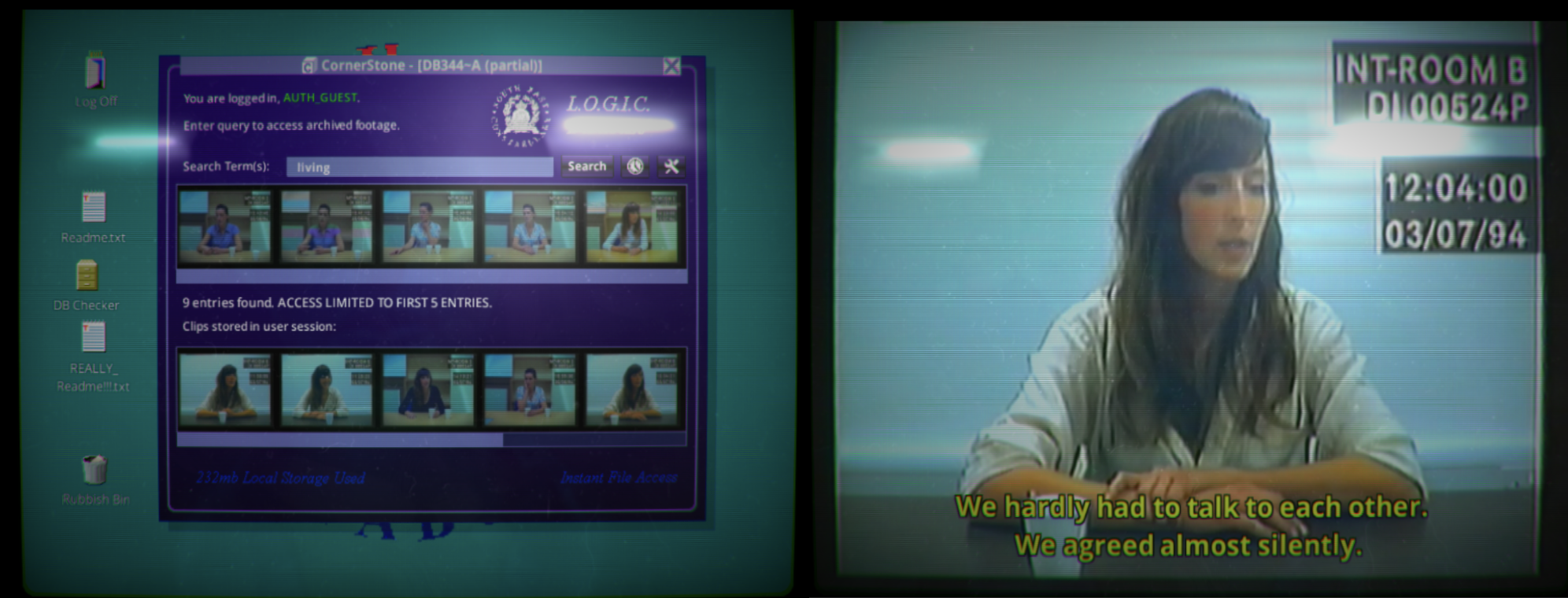
Her Story is an FMV narrative game written and directed by Sam Barlow. The player opens a ’90s computer screen with no explanation of what's happening or why you are there. Clicking on the applications reveals video recordings of police interviews, in which a woman discusses the death of a loved one. As the player watches these clips (ranging from a few seconds to a minute long), they discover new key words about the case, which they can then plug into a search field to open up access to more clips — slowly unraveling the events of the case (at least, from this one woman's perspective).
The unique mechanic allows for players to approach the game in a multitude of ways, and as such, they will each have their own discovery path throug the game. Some will wander through various videos for a while before getting a sense of what’s really going on behind these interviews, while others may stumble into the deep, dark secrets right away.
This is one of those games that makes me think about the nature of storytelling and how it intersects with gameplay. There's a modularity in storytelling that allows for player freedom, and I find myself pondering different approaches to presenting narratives to the player.
Norco
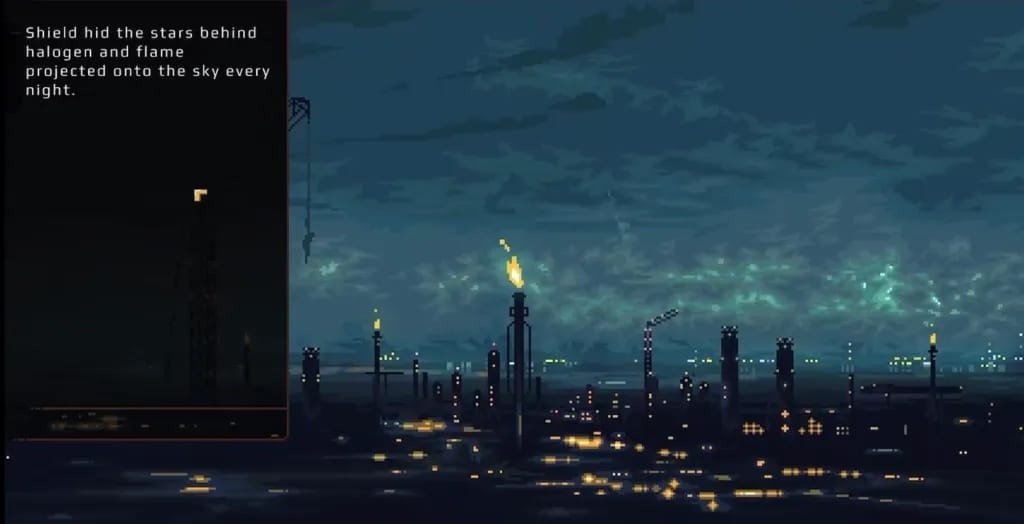
Norco (Geography of Robots) is a point-and-click adventure game set in a near-future New Orleans, where communities have been ravaged by climate change and advanced technologies utilized by mega-corporations are being used to replace workers. When Kay returns home following her mother's death, she discovers that her brother is missing. With the help of a cybernetic robot that lives with the family, she searches for her brother — and along the way she delves into her mother’s research into the strange happenings at Lake Pontchartrain, unearths evidence of corporate espionage, comes into contact with sentient AI systems, and discovers mysterious objects from beyond human understanding.
Norco blends dystopian, cyberpunk, and noir elements into a wonderfully weird storyline that presents the high strangeness of science fiction while simultaneously revealing a gritty reality that leaves workers and disenfranchised folks to live in the mud and muck of flooded homes and without the viable work they need to rebuild their lives.
Storyteller
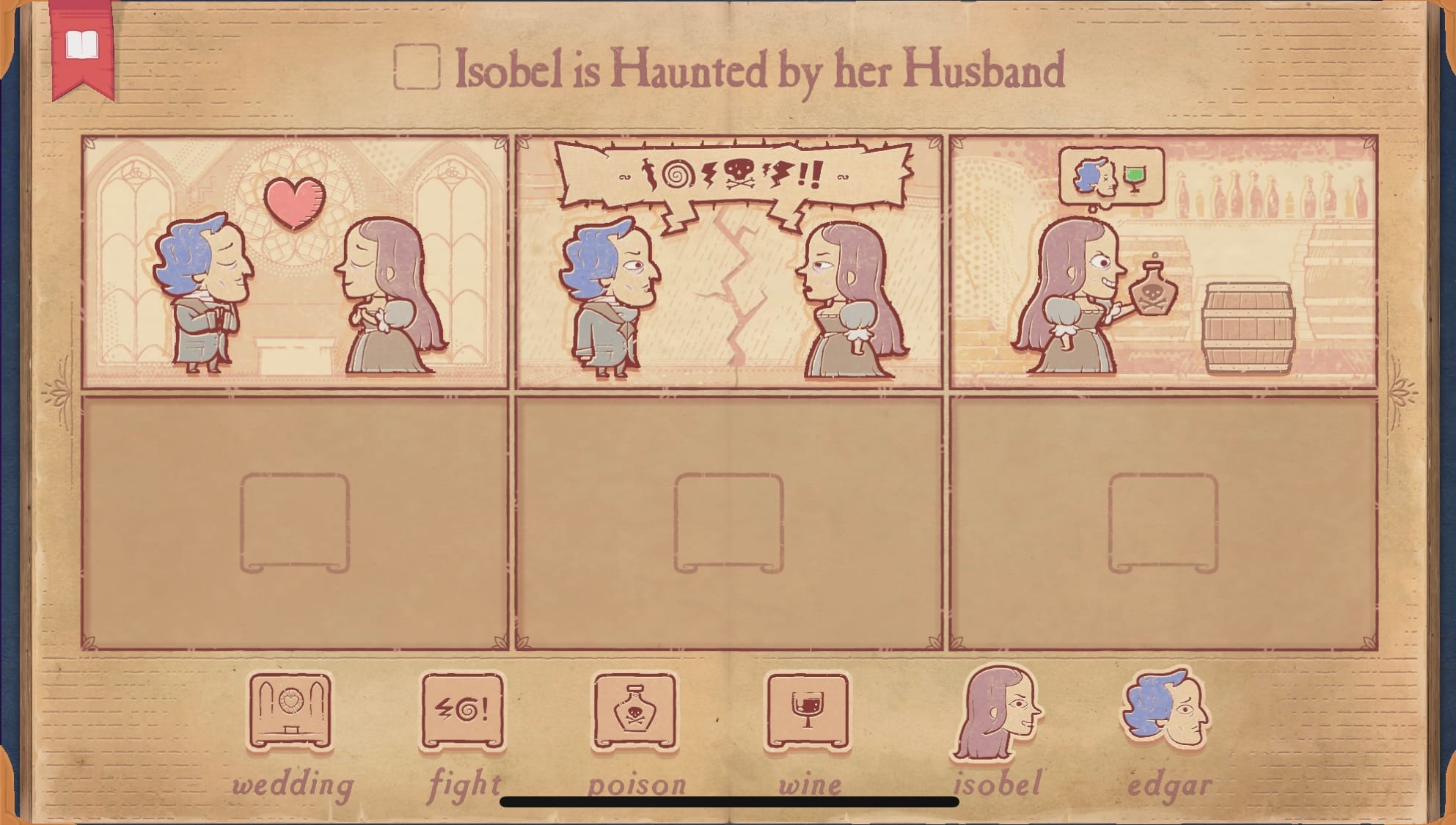
Storyteller (created by Daniel Benmergui) is a charming puzzle game in which the act of storytelling is the mechanic. The player is greeted with an objective (essentially a story ending) and a comic book style grid. By placing the characters together in different settings combined with certain objects, the player has to figure out how to complete the story according to the parameters given. The process of dropping characters into various interactions results in delightfully melodramatic situations with amusing comedic surprises. It’s a short game (just an hour or two, depending on how quickly you complete the puzzles), but wonderfully fun.
Old Man’s Journey
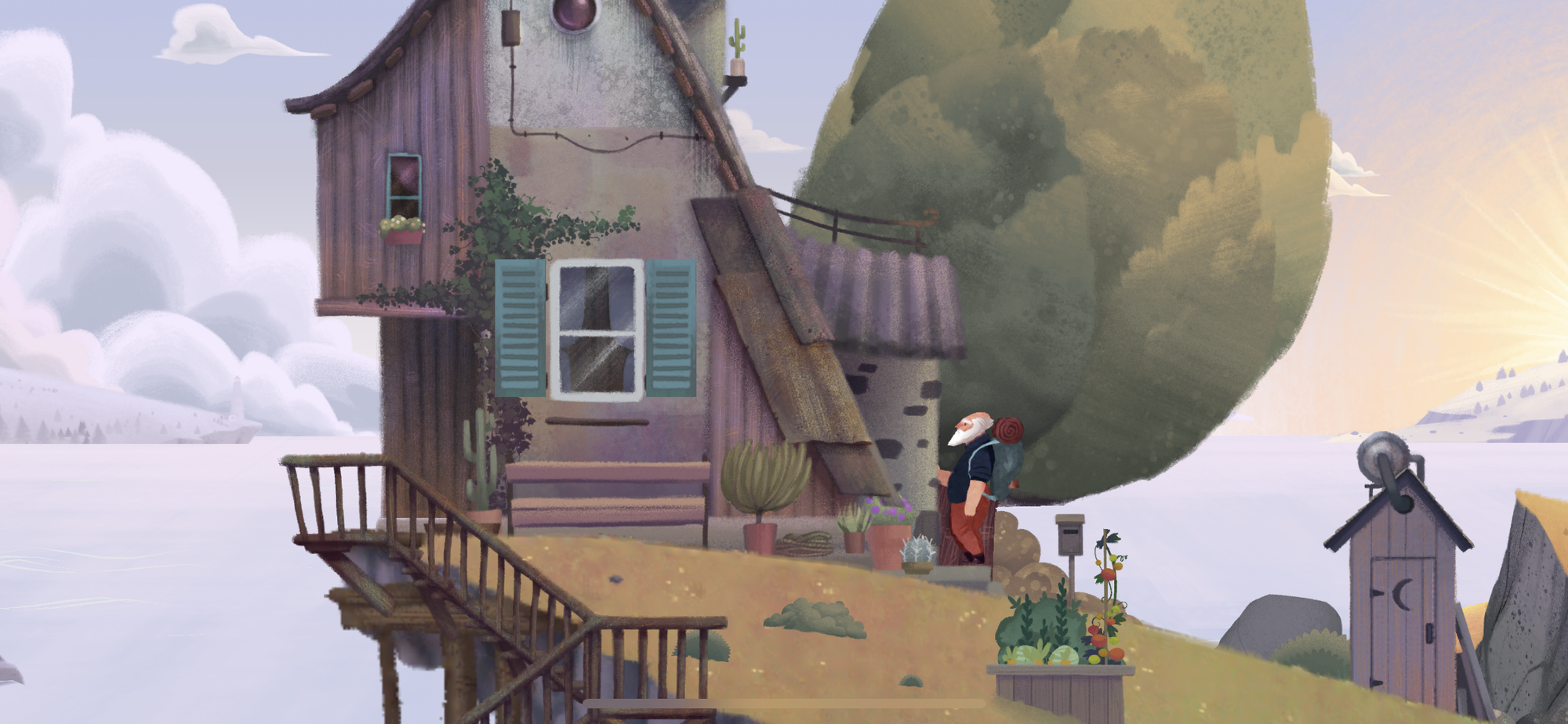
Old Man’s Journey (Broken Rules) is a beautifully illustrated puzzle adventure game about a man who receives a letter that sends him on a journey across the countryside. As he wanders closer and closer to his destination, he reminisces about the past and the family he has long been estranged from. The gameplay involves a simple, yet innovative puzzle mechanic, in which the player changes the height of the hills and landmarks in order to allow the old man to traverse through gorgeous landscapes. This was such a chill and lovely experience.
Getting Over It with Bennett Foddy
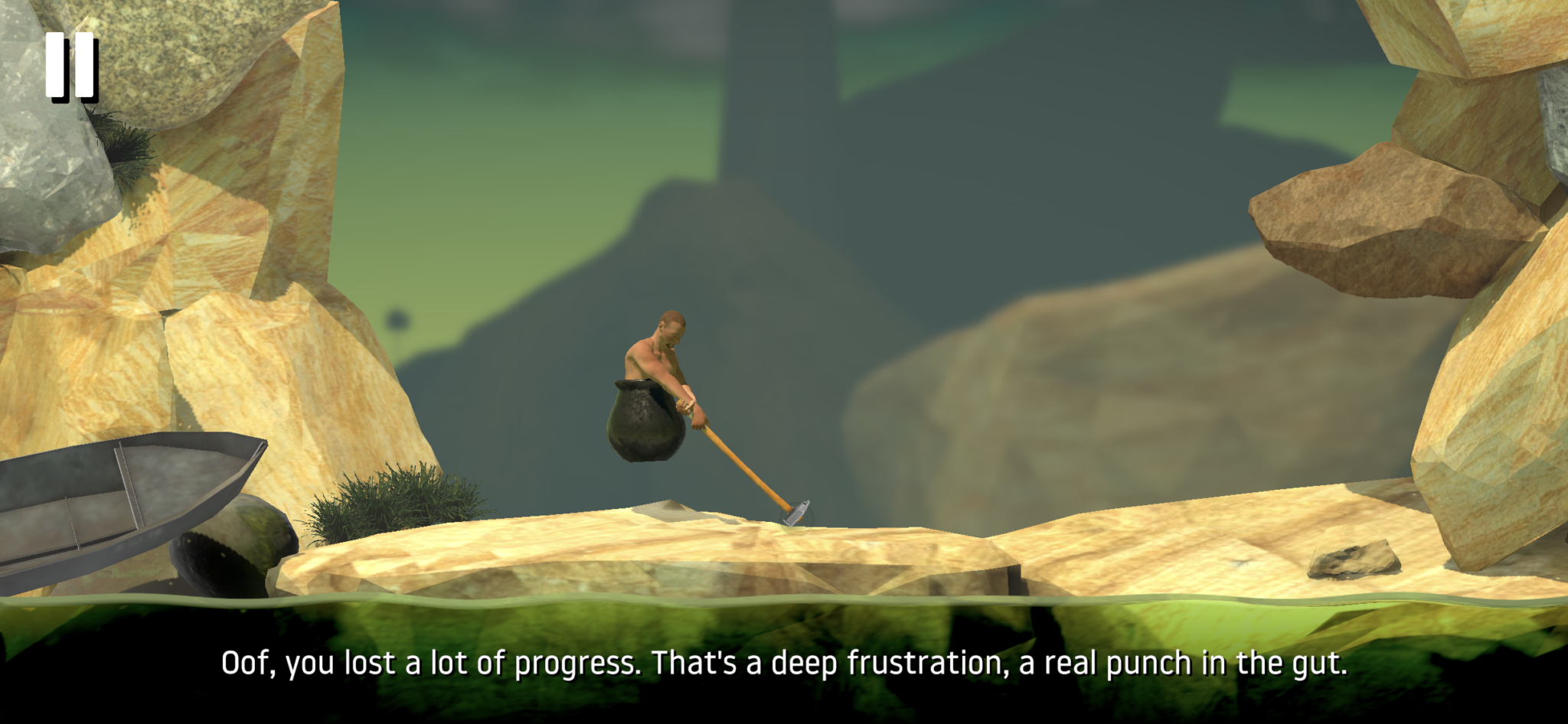
I wondered if I should include Getting Over It, the so-called rage game developed by Bennett Foddy, on this list. Usually, I don't include games that I haven't yet completed. But I can't deny that this game has been impactful for me (and I've written a bit about the interesting way the game uses philosophical messages in replacement of narrative). Since I first started playing it in August 2023, I have returned to this game over and over again — and despite the time and energy I have put into it, I may never be able to complete it.
Getting Over It is frustrating in many ways (hence, it being labeled as a rage game). A man in a cast-iron pot swings a hammer to climb a mountain — but hammer doesn’t always swing the way you expect it to and it takes a significant amount of trial and error to simply figure out how it functions so you can get over the very first tree you encounter. As you climb higher up the mountain, the challenges grow increasingly difficult — and thus, the pain of falling off the mountain (sometimes all the way to the beginning) increases exponentially.
Normally, this would be the kind of game I would quit out of in favor of other games with more enjoyable progression. But there is something satisfying about trying again, falling a dozens of time — hundreds of times — and then trying again and suddenly progressing to the next section that previously seemed impossible.
Falling off the mountain at that point hurts (it really does), but I found myself returning to the challenge with the knowledge that I had made it to that point before, and if I did it once, I can do it again. There is something satisfying about that cycle of frustration and success that drives me back to this game, regardless of the numerous failures it entails.
